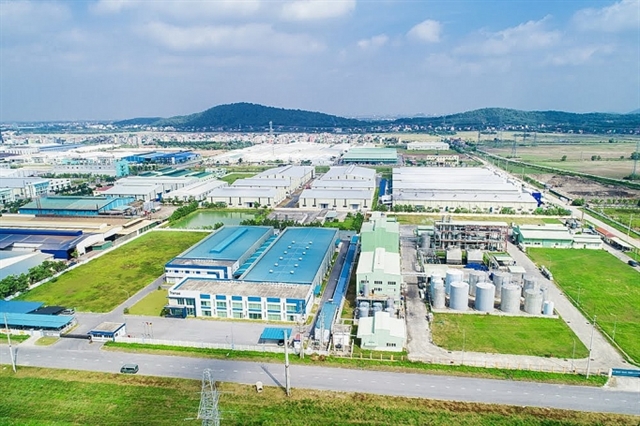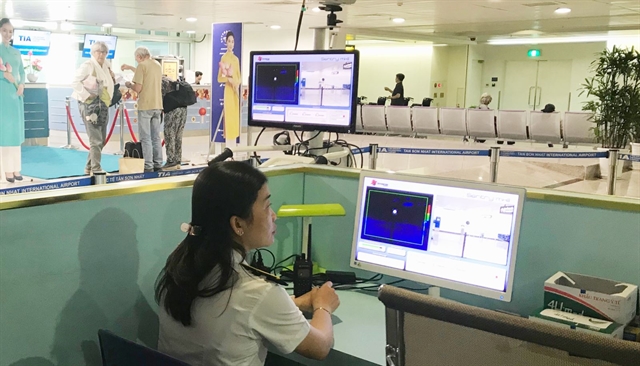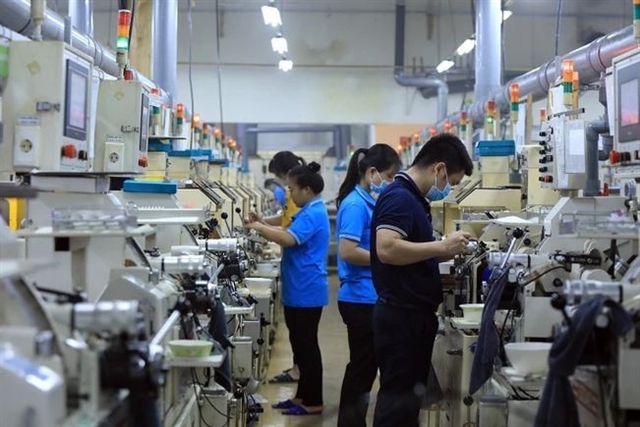 Economy
Economy

Việt Nam is a hotbed of entrepreneurialism generally, but is particularly fertile ground for budding business women. Here, our expat financial services expert Brian Spence examines the trend.
32242031PM.JPG) |
| Brian Spence |
True gender equality still lies some way off, but the world is edging ever closer to this goal as women’s access to educational and business opportunities rapidly improves.
To give an idea of global progress, workforce participation among US female millennials is 69 per cent today compared to 78 per cent for males, while in 1963, these figures stood at 41 per cent versus 88 per cent. In developed nations today, as many as four in ten households have a woman as the primary earner.
Arguably, things are progressing even faster in Asia-Pacific, with women often leading in the wealth-creation race – particularly in the very upper, billionaire, echelons. You might be surprised to learn that today over half the region’s female billionaires are first-generation entrepreneurs.
At the forefront of a global trend
As one of the region’s fastest growing and most dynamic economies, Việt Nam is very much part of this picture and there is no shortage of budding female businesswomen to look up to.
First among the roll-call must be Phương Thảo, co-founder and chair of Sovico Holdings and Việt Nam’s first self-made female billionaire. Having taken her budget airline VietJet Air public last year, she is now worth an estimated US$2.6 billion and was correspondingly named #55 on Forbes “Power Women” list for 2017.
Other prominent names gaining international attention include Mai Kiều Liên, CEO of Việt Nam Dairy Products Joint Stock Company; Thái Hương, President of TH Group; and Lê Hồng Thủy Tiên, chairwoman of IPP Group and a highly prominent figure in the shopping mall sector.
That Vietnamese women are making such a mark should not surprise when one considers that around a third of Vietnamese businesses are led by women today. We can expect this upwards trajectory to very much continue, since the Vietnamese Government is targeting this figure to rise to 50 per cent by 2020. And it should be said that such a target would be very ambitious for even the most progressive Western nations: only a fifth of small businesses in the UK are run by women currently, for instance.
Opportunities and challenges
Vietnamese women are active across the board, but they are thought strongest in launching new businesses in the agriculture and food sectors, so these are areas where support has been most visible recently. As reported by this publication, the recent Australia – Việt Nam Forum (which was co-organised by the Western Sydney University, the HCM City Economics University and the Australia-ASEAN Council in Sydney, Australia) focused much of its discussions on helping Vietnamese business women meet international quality standards.
Adapting to the digital economy is another challenge that Việt Nam’s female entrepreneurs are believed to need particular support with, as is how to balance the demands of family and business life. Both topics have been the subject of forums and seminars put on by female-specific networks, often with high-profile Government support.
In fact, it seems many Western nations might envy the assistance (and inspiration) available to female entrepreneurs in Việt Nam, and the mentoring opportunities they enjoy. The Việt Nam Women Entrepreneurs Council, set up in 2001, now has over 1,000 members and a network of 40 local councils and clubs, for example.
A “no-brainer” economically
Nurturing female entrepreneurial talent seems like a real no-brainer to me because, of course, any nation that neglects women risks losing out on productivity gains from half of its population. The Vietnamese authorities are very wise to see women as a key part of national construction and development in the context of the fourth industrial revolution currently reshaping the world.
I also see the rise of female entrepreneurs as very exciting from a financial services perspective. First generation wealth-creators are naturally in need of advice to help manage the fruits or their success; while women are often particularly in need of guidance in issues like business structuring and succession since they can often lack the peer group mentors male business people have.
It’s great to see how, having got off to a late start economically, Việt Nam is now pulling ahead on progressive initiatives as it grows. I look forward to seeing the country matching – and even surpassing – its global peers in the support offered to female entrepreneurs.
As an experienced practitioner in financial advice and a consultant in business management matters, I would be delighted to speak to business people of both genders looking to maximise their financial well-being, and that of their organisations. Please don’t hesitate to get in touch for an informal chat. — VNS
* Brian Spence is Managing Partner of S&P Investments. He has over 35 years of experience in the UK financial services industry as an investment manager, financial planner and M&A specialist. He is a regular contributor to the UK financial press and has a deep understanding of the financial services community. Brian’s column will reflect on all the challenges and opportunities within the Vietnamese market, bringing a fresh perspective to today’s hottest issues. The columnist’s email address is brian@sandpinvestments.com.




